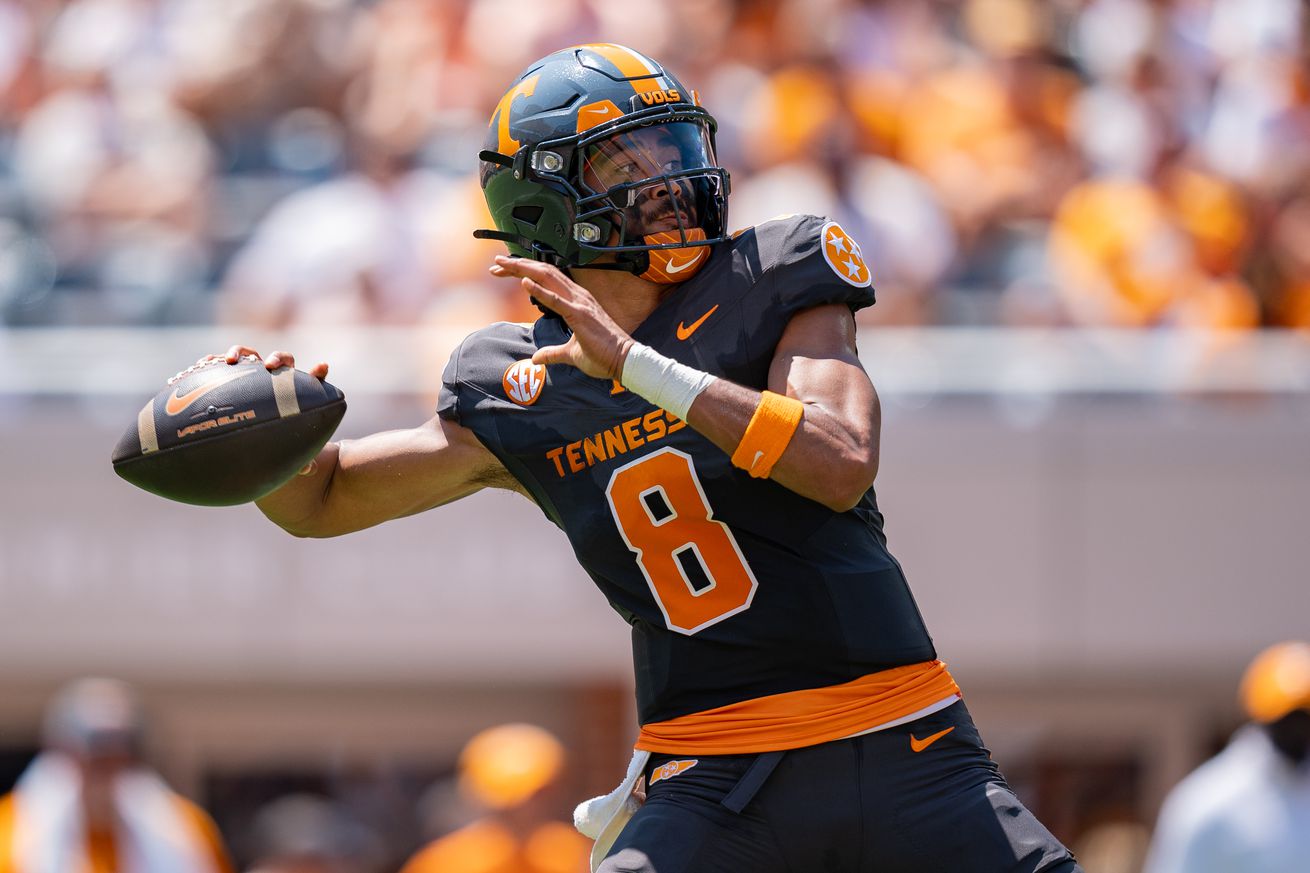
The Vols present a difficult task, but aren’t without vulnerabilities.
Many expect big things from Tennessee in 2024—namely, to contend for a spot in the newly expanded playoffs—and there is no doubt the Vols have the front-end talent to produce. This is despite the fact that it’s a bit of a transition year, as Tennessee ranks 108th in returning production, which is a credit to the job Josh Heupel has done, and a credit to the very large talent at quarterback.
Heupel took over a program that bottomed out with three wins in the 2020 season, getting the team right back to bowl eligibility in 2021 and then achieving liftoff with 11 wins the year after that. His offense took a step back in 2023, but the Volunteers still won nine games and got a peek at the future in their bowl game, when Nico Iamaleava made his first career start.
Iamaleava certainly looks the part of big-time player: he’s 6’6, shows poise beyond his years, and he can throw the ball over them Smoky Mountains. He threw for over 300 yards and three scores in the opener, in just a half of work.
Certainly his inexperience still leaves some lingering questions—Saturday will be his third career start—but he has plenty around him, and that includes a talented and experienced offensive line.
Tennessee has a 1,000-yard rusher to replace in Jaylen Wright, but from a workload perspective, the task is far from daunting, as Wright only averaged 11 carries per game. Dylan Sampson is expected to be a capable replacement there, and he went for 124 yards in the opener.
The Vols’ receivers present some imposing matchup problems and big-play ability. Dont’e Thornton (he’s 6’5) flashed in the opener, making three grabs for 105 yards and two scores; Chris Brazzell (also 6’5) is in from Tulane after grabbing 44 passes for 711 yards last season; and there’s Bru McCoy (6’3), who was limited by injuries last year but had 52 grabs in 2022. The team’s leading receiver in 2023, Squirrel White (an outstanding name for a 5’10 playmaker), returns off an 800-yard season.
The Volunteers’ strength defensively is its line, which is headlined by elite pass rusher James Pearce, who had 10 sacks last fall. He is the kind of talent that can singlehandedly kill a drive, and NC State is going to have to do a good job keeping him out of Grayson McCall’s mullet. If State can do that, there will be opportunities.
The Vols lost their top six tacklers from last season—two linebackers, four defensive backs. The secondary is basically brand new. Tennessee leaned on the portal to fill in gaps, adding corners Jermod McCoy (Oregon State) and Jalen McMurray (Temple), plus safety Jakobe Thomas (Middle Tennessee). McCoy had 31 tackles and seven pass break-ups as a freshman in 2023, McMurray has multiple years of starting experience, and Thomas racked up 71 stops last year.
Tennessee features four upperclassmen on the two-deep at safety, though there isn’t as much on-field experience as that might imply. At corner, three of the top four are underclassmen; and at STAR (nickel), there are two underclassmen. There’s talent here, sure. Proven talent, not so much.
I dare say Chattanooga was not quite capable of putting that back end to the test in Week 1. NC State definitely can do that, but again, it requires keeping McCall upright.
Both of these defenses have their work cut out for them, and State’s especially so. Can NC State stifle enough runs and prove disruptive enough to get some freshman moments out of Iamaleava? Will Tennessee’s defensive front play well enough to mask the issues behind it?
Iamaleava hasn’t faced any game pressure to this point in his career—the Vols won their bowl game 35-0 and there was that romp last week—and whether or not the Wolfpack can oblige on this front early on could make a big difference. It may not matter, of course, because Iamaleava might just be that good. Let’s hope he’s not quite ready for prime time.